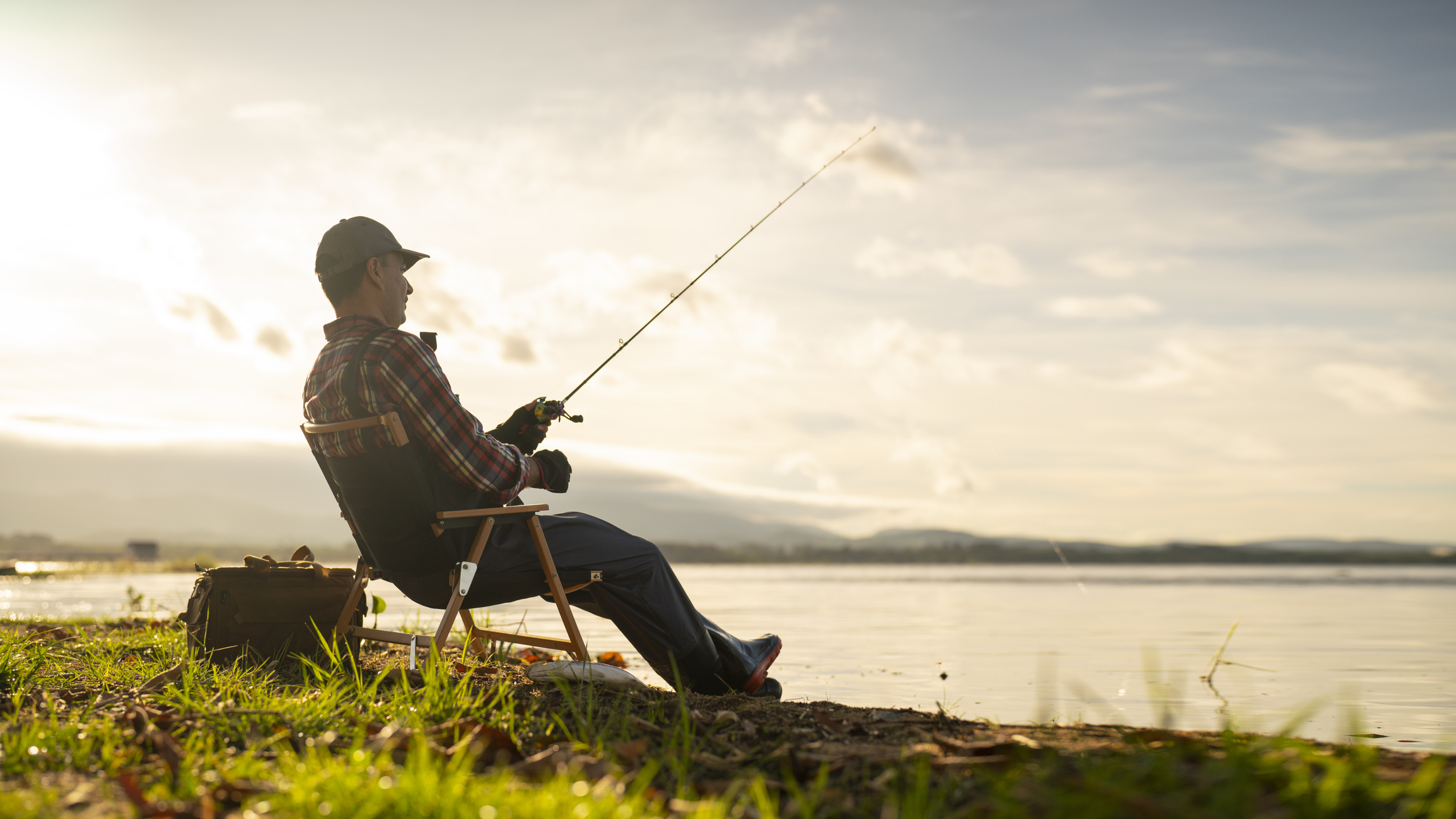

With 6.8 million American adults experiencing generalized anxiety disorder, according to Anxiety & Depression Association of America, managing the effects of the condition continues to be a major topic. With anxiety so common, it’s easy to get lost in some of the solutions, from medication to meditation and everything in between. And while many of these may offer short-term and long-term relief, one solution is seldom brought up: going fishing.
Videos by Outdoors
There’s plenty of research on how green and blue spaces can support mental health. According to Dr. Chloe Carmichael, PhD, a clinical psychologist in New York and USA Today bestselling author of Nervous Energy: Harness the Power of Your Anxiety, “It’s a well-known fact that being in nature reduces stress… Being out fishing can also qualify for that. Fishing specifically has the added benefit of being in or near water, which is also known to be relaxing for people.”
Whether you’re an avid fisher or a novice, these are the mental-health benefits for the hobby, according to experts.
It takes you away from stressors
If you’re fishing, you’ll have no choice but to put down your phone and step away from distractions. “Fishing or spending time near water can provide a sense of solitude, allowing individuals to escape the distractions and noise of daily life,” says Meredith Van Ness, a Colorado-based licensed psychotherapist who specializes in treating stress, anxiety and sleep disorders. “This time alone can promote introspection and reflection, reducing stress and promoting relaxation.”
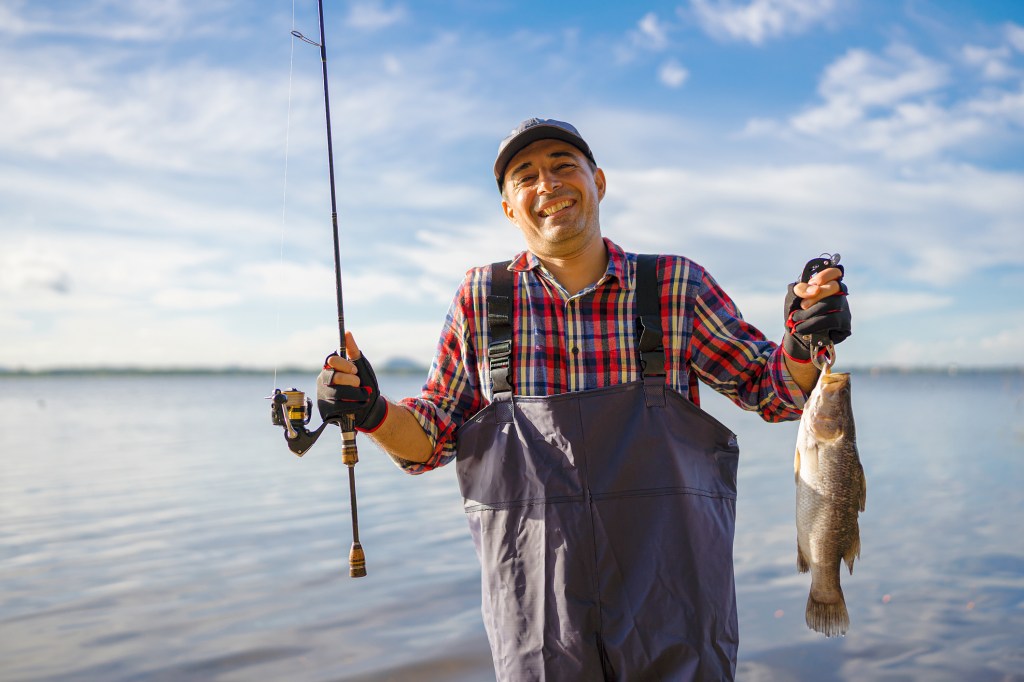
It connects you with nature
As already noted, being outdoors and in nature has so many mental health benefits. “Studies have shown that they can boost endorphins and also can decrease cortisol, a hormone often referred to as the ‘stress hormone’, says Van Ness. “When cortisol levels are elevated, it can lead to physical and mental symptoms of stress, such as headaches, muscle tension, anxiety and insomnia,” she says.
It provides you with purpose
Anyone who’s cast a line knows that fishers have to inherently be vigilant while looking for fish, thinking about their line, and when they catch a fish, there’s yet another process that needs to take place. “The benefit of fishing—as opposed to sitting in nature—is it gives people a cognitive purpose, which keeps their thoughts from wandering and running through their day,” says Carmichael, adding that every single one of those steps that gives you purpose can bring about calm. “Sometimes having little jobs to do, like the little tasks associated with fishing, can pull us closer to nature that will keep our brains focused and connect us with our bodies.”
It forces you to find stillness
With the hustle and bustle of everyday life, sometimes you can’t help yourself. You go, go, and then go somewhere else. Jumping from thing to thing like the best multi-tasker around can sometimes come at a cost on your mental wellness. “There’s an impulsivity that can keep us from connecting with nature,” Carmichael says. “[But] you can’t impulsively stop fishing—you’d have to row back to shore or pack up. There’s a hurdle with just stopping.” In other words, there’s a level of effort to the act of fishing that doesn’t make it easy for you to stop what you’re doing. With activities that are more passive, such as sitting on a bench in the park, you sometimes don’t give yourself enough time to be still. You might move on quickly and never reap the benefits of “the pause” from the everyday.
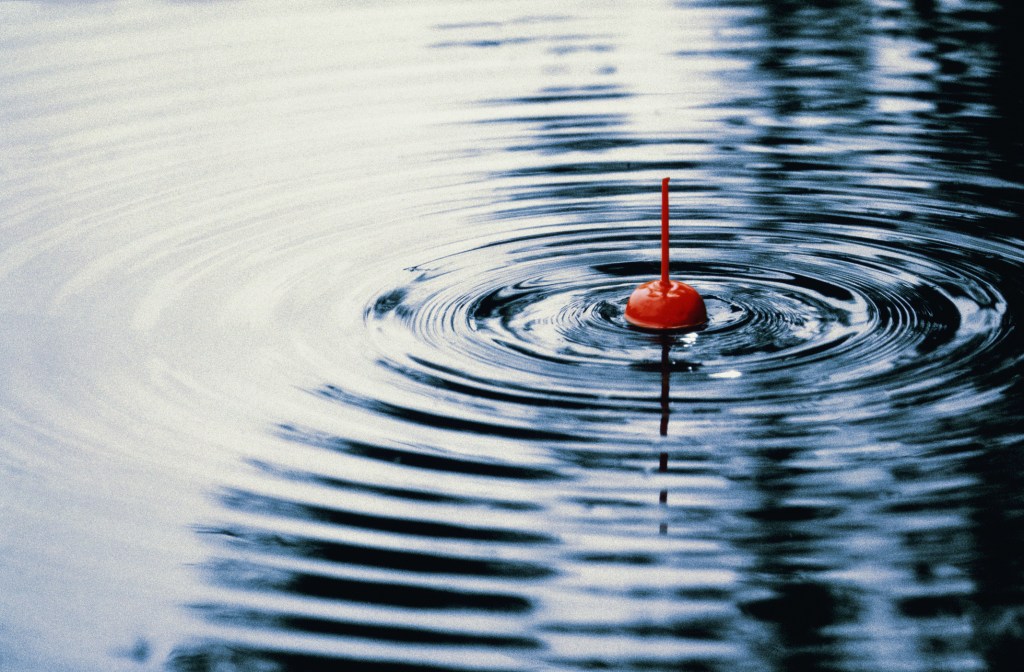
Fishing makes you more mindful
When you fish, you automatically have to be mindful as you give the activity focus and attention. That, in turn, can help reduce stress and anxiety, says Van Ness. “Mindfulness has been shown to lower cortisol levels and promote a sense of calm and well-being,” she adds.
It offers the opportunity to be active
Lastly—and quite obviously—going fishing promotes fitness, which also improves mental health. “Fishing is a form of light exercise, which has been shown to reduce cortisol levels and promote feelings of calm and relaxation,” says Van Ness. “The physical movement involved in fishing can also help to reduce muscle tension and promote better sleep.”
It’s just one example of a way to destress
All this said, is fishing for everyone? At the end of the day, whether you suffer from anxiety or just have standard restlessness, activities that help reduce stressors are not all created equal. What might be relaxing for one person is tedious for another. There’s no such thing as a perfect path to reach optimal mental health. You have to experiment until you find just the right solution that soothes your soul. So try fishing and see how it goes, but always talk to your doctor if you have deeper concerns about your mental health.
More on fishing from Outdoors.com:
- Basic Fishing Knots for Beginner Anglers
- Must-Have Gear & Accessories for Overnight Ice Fishing
- Free Fishing Days: When You Can Fish Without a License (State by State)
- Tips to Get Started Fly Fishing
- 10 Best Places to Catch Catfish
- Freshwater ‘Micro Fishing’ Can Be Your New Family-Friendly Winter Hobby






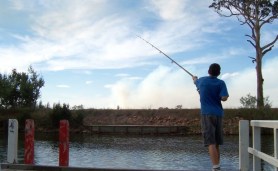

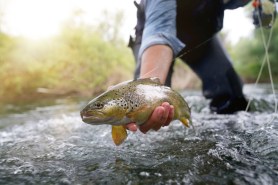

Pingback: Georgia Fishing Report: May 19, 2023 – Georgia Wildlife Blog